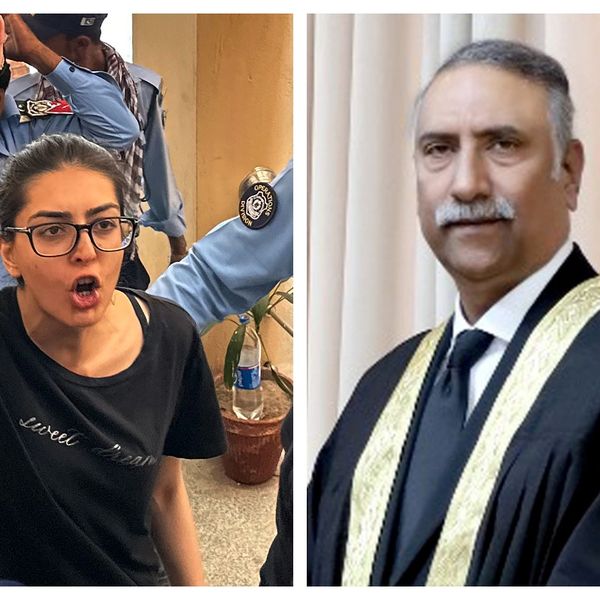Pakistan to begin issuing licenses for cryptocurrency trading
The move aims to bring greater legitimacy and oversight to virtual asset transactions, which have until now operated in a legal gray area
Business Desk
The Business Desk tracks economic trends, market movements, and business developments, offering analysis of both local and global financial news.

The Pakistan government has decided to issue licenses to banks, exchange companies, and jewelers to operate in the virtual currency space, officials familiar with the matter told Nukta.
The decision was discussed during a high-level meeting held on Tuesday, where key stakeholders and regulators gathered to review the implementation of the recently enacted Virtual Assets Act of Pakistan.
During the meeting, Bilal Bin Saqib, CEO of the Pakistan Crypto Council (PCC), delivered a comprehensive presentation on the current and potential use of virtual currencies in the country, outlining regulatory challenges and opportunities. The presentation emphasized the need for formal mechanisms to regulate digital assets and align the sector with global standards.
Central to the new legal framework is the creation of the Pakistan Virtual Asset Regulatory Authority (PVARA) — a dedicated body established under the Virtual Assets Act to license, regulate, and supervise all entities involved in the handling of virtual assets, including cryptocurrencies, tokens, and other blockchain-based financial products.
PVARA is mandated to ensure that operations in the sector adhere to international norms, particularly those set by the Financial Action Task Force (FATF). Its core responsibilities include monitoring financial flows, preventing money laundering, and protecting consumers, while also promoting responsible innovation in the digital finance space.
Licensing to begin soon
During the meeting, representatives from the State Bank of Pakistan (SBP) and the Securities and Exchange Commission of Pakistan (SECP) informed participants that banks, exchange companies, and jewelers will be eligible for licensing under the new law. These entities will be required to meet strict compliance requirements related to transparency, anti-money laundering (AML), and know-your-customer (KYC) procedures.
The move aims to bring greater legitimacy and oversight to virtual asset transactions, which have until now operated in a legal gray area. Industry insiders say this could pave the way for increased foreign investment and public confidence in Pakistan’s nascent digital asset sector.
The licensing announcement reflects a broader policy shift by Pakistani authorities toward embracing financial innovation, while balancing the risks associated with virtual currencies. It also marks a continuation of efforts to comply with FATF recommendations, following Pakistan’s successful exit from the FATF “grey list” in 2022.
“The Virtual Assets Act represents a landmark shift in Pakistan’s approach to digital finance,” said a government official who attended the meeting. “By involving regulated financial institutions and trusted market players like jewellers, the government hopes to mainstream crypto use in a secure and monitored environment.”
The government is expected to issue detailed licensing criteria and operational guidelines in the coming weeks. Stakeholders from the financial sector, fintech companies, and blockchain startups are being consulted as the rules are finalized.










Comments
See what people are discussing